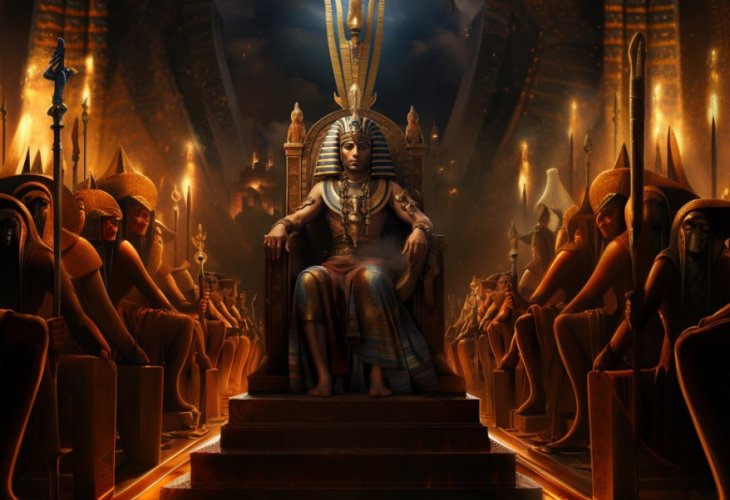Did Pharaoh's Son Embrace a New Belief? An Intriguing Theory
We've given up on Pharaoh from the Exodus story, as he refused to understand anything despite all the plagues. But what about his son?

We know Pharaoh very well from the biblical story and the teachings of the sages. It's hard to describe anyone more stubborn. Some might suggest judging him favorably because Hashem hardened his heart, but either way, the outcome is known to us: the more he resisted, the more he suffered. Yet, until the very end, he persistently fought against the Creator of the world.
But is it possible that his son was indeed impacted by the mighty hand and outstretched arm revealed during the Exodus?
Well, the history of Egypt is quite deceptive. On one hand, the Egyptians left behind many structures, inscriptions, tombs, and praises of themselves, but on the other hand, organizing these findings, dating them, and understanding what truly occurred isn't so simple. Thus, the dating of the Exodus against Egyptian chronology is controversial, with numerous and varied proposals.
Nonetheless, the simplest dating, which aligns with the sages' tradition according to the Seder Olam, is that the Exodus took place in the year 2448 from creation, in the 14th century BCE. At that time, Pharaoh Amenhotep III reigned, a great and powerful king according to his own accounts. Amenhotep III died at around age 45. The Egyptians didn't record the reason... Incidentally, his wife's name was Tiye – an interesting similarity to Batya, mentioned by the sages as Pharaoh's daughter.
But as mentioned above, we've given up on the Pharaoh of the Exodus; he truly refused to understand anything, and the Jewish people, along with humanity, learned a significant lesson in faith through him. But what about his son?
His son, Amenhotep IV, was considered mad by the Egyptians. Egypt wasn't a liberal academy; it had very clear rules regarding the world order, but Amenhotep was uninterested. With the beginning of his reign, he built himself a new capital city, calling it "Akhetaten" (today known as Tell el-Amarna). He proclaimed a sacred religious festival, announcing to all that from now on, all Egyptian gods were unimportant, and there was only one god to worship. This god was... the sun. He even changed his own name to "Akhenaten," after the sun. He pursued all other gods with great zeal, scratching their names from the temples.
According to some researchers, Akhenaten was influenced by the Exodus, which he experienced as a young boy. The downfall of the Egyptian gods left a mark on him. As a product of Egyptian culture, he didn't recognize Hashem, the Creator of the universe, and perhaps couldn't even comprehend the existence of an unseen God. Therefore, he decided the sun was the great god. Nevertheless, the mere recognition of one god was a result of the Exodus.
Akhenaten neglected the great empire his conquering father had built. He secluded himself in his temples and new faith. A famous collection of letters describes correspondence with the kings of Canaan – they were crying out against the neglect and pleading for help, as the *Habiru* were taking over the land, and Pharaoh was doing nothing and not coming to help (the *Habiru*, according to one interpretation, were the Israelites).
Well, if the theory is correct, then Pharaoh indeed didn't repent and convert like Jethro, but he was certainly influenced by the Exodus, withdrew from the empire's affairs, and tried to find a way out, so to speak, from the monstrous idolatry cultivated by his ancestors.
Akhenaten's sons didn't follow his path but responded in kind, erasing his names and inscriptions, attempting to restore the Egyptian empire. However, it fell and never rose again as a world power. "And Egypt shall know that I am Hashem."

